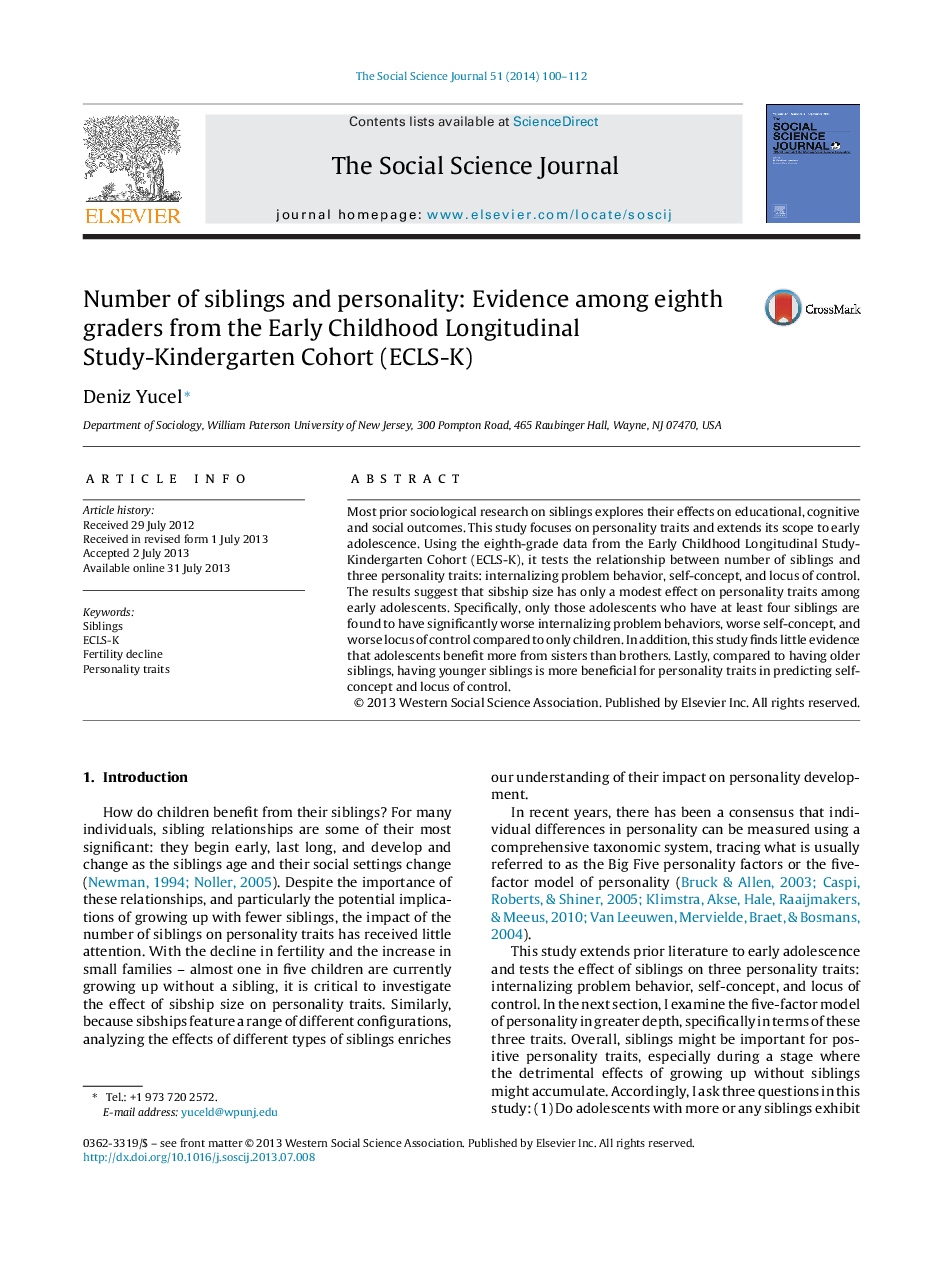| Article ID | Journal | Published Year | Pages | File Type |
|---|---|---|---|---|
| 140183 | The Social Science Journal | 2014 | 13 Pages |
•This study tests the effects of sibship size and other dimensions of sibship on personality traits among early adolescents.•The results suggest that sibship size has only a modest effect on personality traits.•This study finds little evidence that adolescents benefit more from sisters than brothers.•Having younger siblings is more beneficial for personality traits in predicting self-concept and locus of control.
Most prior sociological research on siblings explores their effects on educational, cognitive and social outcomes. This study focuses on personality traits and extends its scope to early adolescence. Using the eighth-grade data from the Early Childhood Longitudinal Study-Kindergarten Cohort (ECLS-K), it tests the relationship between number of siblings and three personality traits: internalizing problem behavior, self-concept, and locus of control. The results suggest that sibship size has only a modest effect on personality traits among early adolescents. Specifically, only those adolescents who have at least four siblings are found to have significantly worse internalizing problem behaviors, worse self-concept, and worse locus of control compared to only children. In addition, this study finds little evidence that adolescents benefit more from sisters than brothers. Lastly, compared to having older siblings, having younger siblings is more beneficial for personality traits in predicting self-concept and locus of control.
